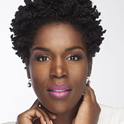
Honestly speaking. when I heard the term “water justice,” I didn’t exactly jump out of my skin with excitement. But with each meet-up, I got more and more into the topic and interested in hearing what everyone around me had to say and how their religion impacts their views.
I applied for the ICJS Justice Leaders’ Fellowship (JLF) seeking more knowledge and understanding of the Islamic and Christian faiths; learning more about the Jewish faith was just going to be an added bonus. In hindsight, I realize even Fellowship Director Fatimah Fanusie couldn’t have prepared me for what I was going to experience because, honestly, it is the great selection of people comprising the Fellowship that makes this experience so memorable.
When I started the Fellowship, I was more interested in learning about the various religions than I was in how water and justice relates to them. While I have yet to merge the topics of water and justice in the various religious traditions in my thinking, I have learned much more about water justice than I could have ever imagined. Separately, I have developed a deeper understanding of the Abrahamic religions and the people who practice them. One woman shared the following that really stuck with me: “I wear [Hijab] as a reminder that there is something greater than me.”
Until JLF, I never realized water justice was such a big issue. If anyone would have brought it up, I am sure I would have started daydreaming about things I deemed more important, like how we can better service clients at my salon. But after reading, listening, and weighing-in on the topic, I have formed my own opinion, wholeheartedly believing that access to water is a human right and denying anyone that access should be unlawful.
Due to my own ignorance and good fortune, I’ve never even imagined living without access to water. But being exposed to the various JLF readings, I am a witness to just how cruel capitalist societies can be in their dismissal of basic human needs to those with less money in their bank accounts. I found most interesting the conversation surrounding the water justice crisis in Baltimore and the sincere passion with which my tablemates discussed all the horrid things going on. I thought how privileged we were to sit around and have a heated discussion about paying too much for water when some don’t have access to water at all.
I also found it fascinating how often my tablemates turned to someone of another religion and said, “Wow, I never knew that about your religion!” It made me realize I wasn’t alone in my ignorance of religions outside of what I grew up knowing. Mostly, I find it interesting that those who practice these three religions believe so strongly in their religion when it shares so many similarities with the others. The Islamic, Christian, and Jewish religions all have their own texts, yet contain many of the same stories. Or at least that is my limited understanding of it.
I have come to think of water justice as a reason for everyone to sit at the table and discuss their various religions. Based on the conversations, I believe everyone is gathering for a deeper understanding of others. Our conversations often go off topic into basic human existential discussions, and we rush to bring them back to the topic-at-hand when our time is almost up.
I’ve always thought of my salon as a very subtle way of telling the world Black people are beautiful. In my head, this is a form of justice that everyone should be afforded. The belief that you are beautiful and worthy of great things. After my experience with JLF, I somehow feel like I am serving my Jewish and Muslim clients better by having a deeper understanding of their religions.
 Angela Walker is the Creative Executive Officer of N Natural Hair Studio, and a member of the 2020 ICJS Justice Leaders Fellowship.
Angela Walker is the Creative Executive Officer of N Natural Hair Studio, and a member of the 2020 ICJS Justice Leaders Fellowship.
Baltimore is part of a national conversation around questions of justice, race, and community. Members of the ICJS Justice Leaders Fellowship consider how Jewish, Christian, and Muslim teachings and practice can contribute to the public conversation about (in)justice. Opinions expressed in this blog are solely the author’s. ICJS welcomes a diversity of opinions and perspectives. We do not seek a single definition of justice between or within traditions.